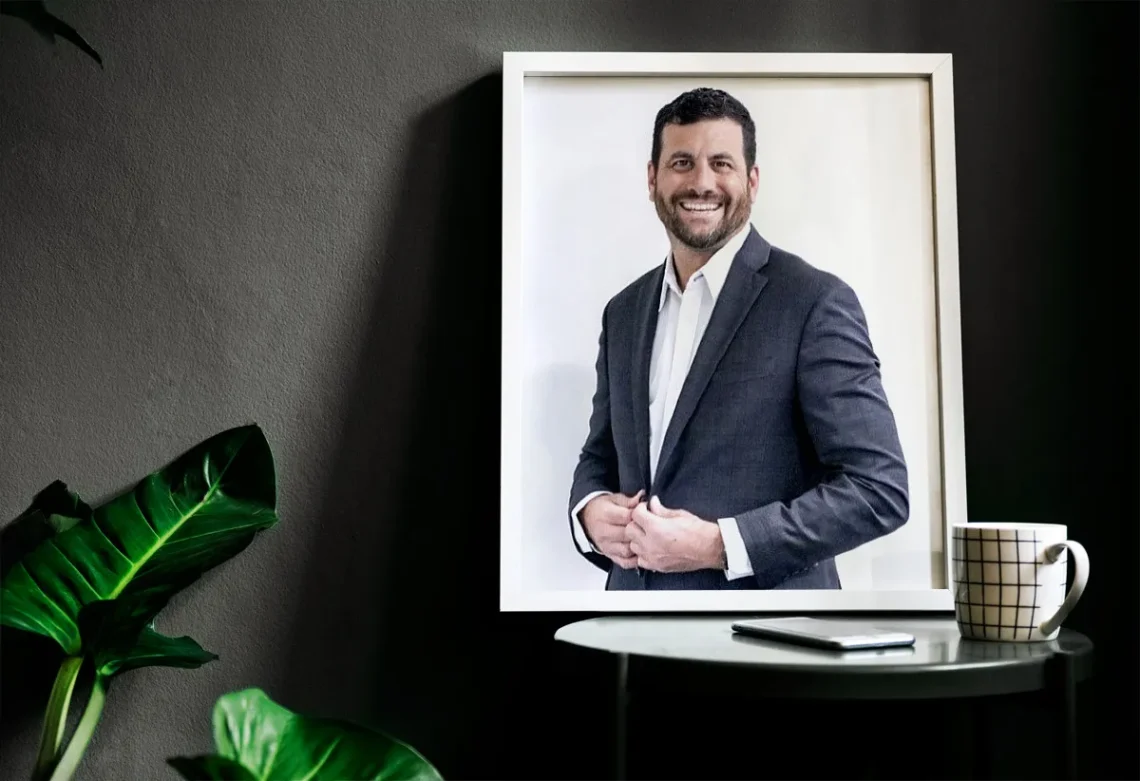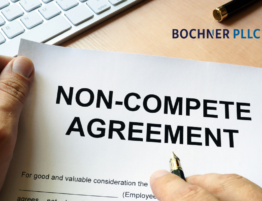
There is no secret, post valuable content that people find interesting, start a conversation online that is relevant to what you do and you will build your practice.
. . .
Recently, our very own Tom Stanton was interviewed by Authority Magazine, recognized as a Top Lawyer in the Intellectual Property Law field. Below is a copy of the interview, and tips on how Tom became a top lawyer in the IP law industry, and recognized across the United States as a reputable law firm.
What is the “backstory” that brought you to this particular career path in Law? Did you want to be an attorney “when you grew up”?
I always dreamed of being an attorney, but it was more because I had an interest in politics. While that is still a possibility, the goal of politics is much lower on the list now. I had a previous career in technology and when I sold my company in 2010, I worked for the acquiring company for 3 years as their director of sales and marketing. Then I wanted a change and going to law school just seemed right, so I went and here I am.
Can you tell us a bit about the nature of your practice and what you focus on?
We have a heavy focus on Intellectual Property. We also have a nice niche with technology startups as well. We provide transactional and litigation services to startup to midsize companies that have a nexus of IP related content and protections.
You are a successful attorney. Which three character traits do you think were most instrumental to your success? What unique qualities do you have that others may not? Can you please share a story or example for each?
Persistence. When I decide to do something, I do it. Case in point is at age 35, I quit a very successful career in tech to go to law school. Honesty. I try to do things the right way even if they cost me money because it pays off in the long term. My first business was not as successful as I imagined it would be, but me and my partner were still able to build a very good reputation and that reputation allowed me to grow my law firm at a much faster pace. Vision. If we don’t have purpose, it is hard to stay motivated. I try to keep the vision and purpose very much alive at the law firm and give my team a reason to come into the office everyday and work hard. Without vision we can get stuck in the mud and not know why.
Do you think you have had luck in your success? Can you explain what you mean?
I enjoy the quote “Luck is what happens when preparation meets opportunity” and I think this is almost always the case. We must prepare ourselves to be lucky. I certainly have not had the winning lotto numbers or any luck like that, but there are always elements that occur and cannot be explained. Sometimes we call that luck. One such example is that after law school I was going to move to NYC. I was talked out of it by some mentors and that was about as lucky as I could have gotten. Since 2017 when I stayed in Tampa, FL and started my firm, a pandemic happened which would not have been fun experiencing in NYC, and Tampa has become the premier destination for tech startups. Who could have guessed it?
Do you think where you went to school has any bearing on your success? How important is it for a lawyer to go to a top-tier school?
I went to Stetson Law School, and it is a great school especially for practicing in Florida since it is the oldest law school, but because I started my own firm right away it didn’t really matter where I went to school. It has helped with networking and getting law clerks though. It really depends on what a person wants to do. If you want to work for a firm that only hires Harvard grads, then you probably need to go to Harvard. What I have seen is that where you go to school only affects your first job opportunity, after that it is minimal at best.
Based on the lessons you have learned from your experience, if you could go back in time and speak to your twenty-year-old self, what would you say? Would you do anything differently?
Stay focused. I have a thirst for knowledge I enjoy learning about a lot of things. Some would say that is a good thing, and it is to a point. The issue for me was that I was easily distracted and never dedicated myself to become good at something. I was pretty good at a lot of things and still am, but now I really focus on being the best attorney and best business owner I can be.
This is not easy work. What is your primary motivation and drive behind the work that you do?
At the time of this article, I have 11 employees and many of them have families. I take that responsibility very seriously and know that this firm provides for them. I also know what it is like to have a startup business and to need great representation. Being able to help our clients through thick and thin and watch them grow is a great motivator.
What are some of the most interesting or exciting projects you are working on now?
Most I can’t talk about because they are not public knowledge, but we get to see very exciting cutting-edge technology and inventions. We also get to participate in very interesting litigation cases involving very complex areas of law which is a lot of fun. Probably the most interesting project is growing a law firm. In 5 years, we are largest IP only law firm in the Tampa Bay area and we don’t intend to stop anytime soon.
Where do you go from here? Where do you aim to be in the next chapter of your career?
Nothing would make me happier than creating a firm that can make others at the firm a lot of money. Something that can change their lives over time. I hope to get the firm to a point where I don’t have to be involved in day-to-day activities and can focus on opening other offices and working on some side businesses.
Without sharing anything confidential, can you please share your most successful “war story”? Can you share the funniest?
One that comes to mind is we were asked to come into a case that was a few weeks from trial. It involved computer programmers that create video games. It was a very interesting fact pattern, but we had a lot of work to do to get up to speed. We felt unprepared going into trial, but we were able to get a clean sweep verdict for our client. This was a lot of fun. As far as funniest, I can’t really think of anything, other than we laugh a lot at our firm. Everyone feels like they can be themselves and we work hard, but we also have good banter and make fun of ourselves a lot.
Ok, fantastic. Let’s now shift to discussing some advice for aspiring lawyers. Do you work remotely? Onsite? Or Hybrid? What do you think will be the future of how law offices operate? What do you prefer? Can you please explain what you mean?
Hybrid for sure. I do not believe full remote will become permanent. Lawyers need water cooler talk and need to interact/bounce ideas off each other to be the most effective. We are all social creatures even the most introverted are. Being fully remote takes a lot of that away. We have a hybrid policy at our office and I think that is here to stay.
How has the legal world changed since COVID? How do you think it might change in the near future? Can you explain what you mean?
I think the biggest change is that video conferencing is now an accepted if not preferred method of meeting versus in person. I think technology will continue to change the legal industry and I believe it is a long time coming.
Based on your experience, how can attorneys effectively leverage social media to build their practice?
There is no secret, post valuable content that people find interesting, start a conversation online that is relevant to what you do and you will build your practice.
Excellent. Here is the main question of our interview. What are your “5 Things You Need To Become A Top Lawyer In Your Specific Field of Law?” Please share a story or an example for each.
You need to Care, Communicate, Charge, Be Trustworthy and Transparent.
You must care about your clients and your work. If you do, it will show and if you don’t, it will show.
You must communicate clearly and effectively with your clients, colleagues, and everyone in between. Without communication we really aren’t lawyers, and it is amazing how many lawyers forget that. Communicate clearly and often.
You must charge for your services. We attorneys spent an enormous amount of time and money to learn our craft, if you don’t charge for it, you won’t be in business and you won’t be a top lawyer. We have a rule at our firm that is bill for value. I want each attorney to think about the work they do and if it provides value to the client, if yes then bill, if not then don’t.
Being trustworthy is a huge aspect of becoming a top lawyer specially in our field. We understand that the process to protect intellectual property is long and sometimes difficult, but when our clients trust us to get the job done, the process gets easier. The key is to build that trust from the moment you speak with a client for the first time.
Transparency is also key. We will not take a client if we truly believe we cannot help them or provide value. Being upfront and transparent with a client saves time, money, and headaches. We want to ensure through transparency that we can deliver what we promise and that is solid intellectual property protection.
We are very blessed that some of the biggest names in Business, VC funding, Sports, and Entertainment read this column. Is there a person in the world, or in the US with whom you would love to have a private breakfast or lunch, and why? He or she might see this. 🙂
I love to laugh and being able to have coffee with Jerry Seinfeld would be an amazing experience. No agenda, no prewritten questions, just drinking joe and chatting. He is one of the all time greatest comedians.







